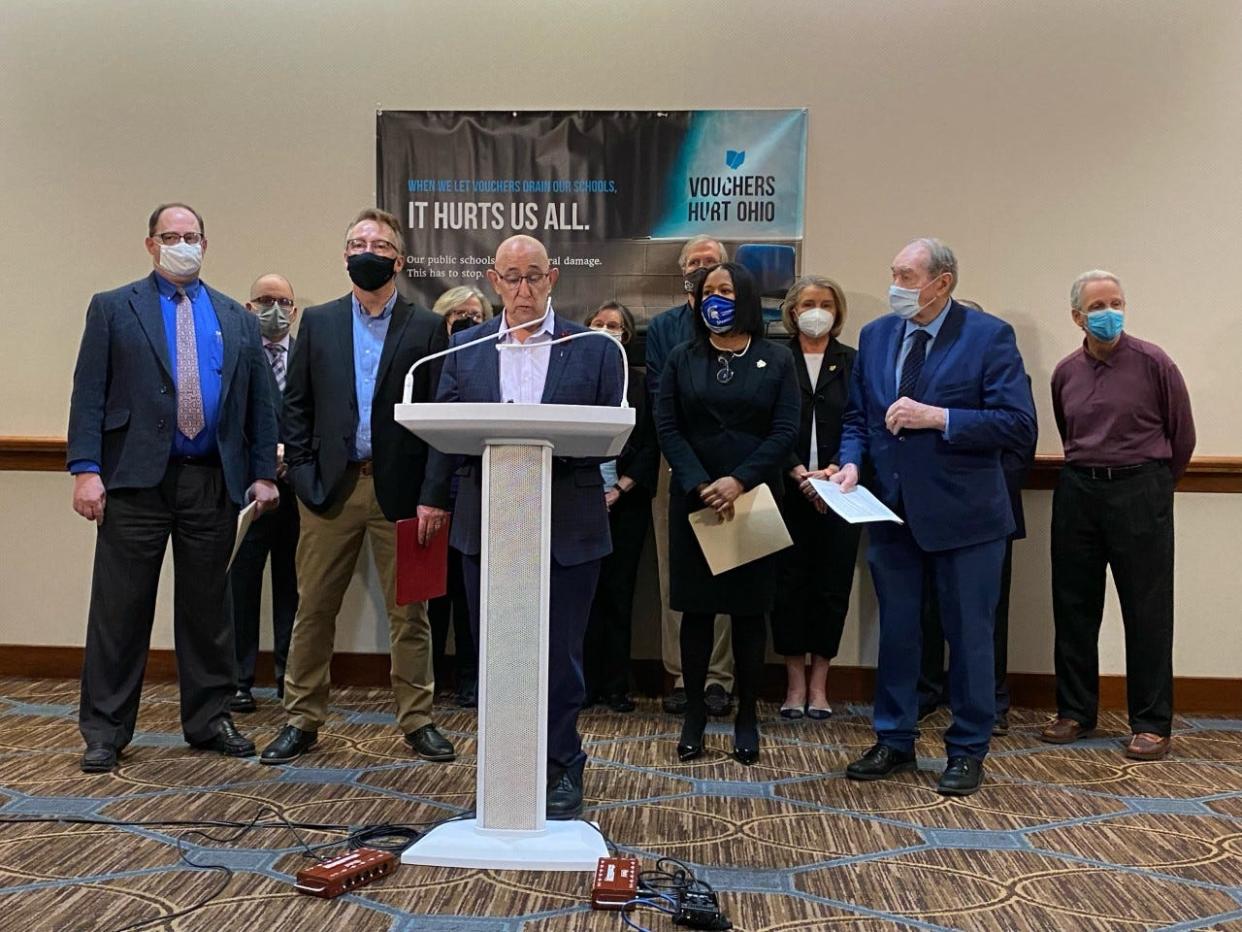School voucher lawsuit: Judge rejects Ohio's request to dismiss, case will move forward

A lawsuit challenging whether Ohio's school voucher program violates the state's constitution got the green light to move forward Friday thanks to a ruling by a Franklin County court judge.
The 22-page decision from Judge Jaiza Page rejected arguments made by Ohio's Attorney General that the students and school districts who sued had no legal standing and that the case had no merit because of previous state and federal court decisions.
More:100 public schools are suing Ohio, saying EdChoice voucher programs are unconstitutional
"We are one step closer to proving that private school vouchers are unconstitutional, and hurt Ohio, our public school students, educators, parents, taxpayers and our communities," Ohio Coalition for Equity & Adequacy of School Funding Director William Phillis said in a statement. "Facts matter in the court of law. The Ohio Constitution is clear. There shall be a single system of public schools, not a separate and unequal system of schools."
Here's what the lawsuit says:
Students can sue
Lawyers for the Ohio Attorney General's office argued that the student plaintiffs shouldn't be allowed to sue because "they have not alleged any particularized injury," or at least not one "sufficient to have standing."
Basically, the state said the students couldn't point to specific educational opportunities they missed because Ohio sent dollars to the EdChoice Scholarship programs.
Judge Page disagreed, writing that the kids potentially faced "overcrowded facilities, inadequate materials, and are educated in districts with insufficient learning supports."
School districts have standing
Ohio also challenged the standing of more than 100 school districts who signed onto the lawsuit "because neither has pleaded a specific injury caused by vouchers" and "districts have actually received increased funding."
Again, Judge Page disagreed.
"Defendants cite to no precedent that prohibits a school board or school district from challenging the constitutionality of a statute under Article VI, Section 2 of the Ohio Constitution," according to the decision.
Not every voucher program would be constitutional
The big issue raised by the state's attorneys was that Ohio's EdChoice system has been in the courts before.
In 1999, the Ohio Supreme Court declared the state's Cleveland voucher program constitutional.
Those scholarships, according to the court, didn't violate the First Amendment's freedom of religion clause "because (public) funds cannot reach a sectarian school unless the parents of a student decide, independently of the government, to send their child to that sectarian school."
The U.S. Supreme Court reached a similar conclusion in 2002, but a lot has changed since then.
Ohio has grown its voucher program from Cleveland to the entire state, increased the scholarship amounts, created a new income-based voucher and expanded the criteria for ending up on the performance-based voucher list.
"The court in (Simmons-Harris v. Goff) emphasized that the current funding level of the voucher program before it did not violate provisions of the Ohio Constitution," Judge Page wrote. "However, Plaintiffs allege that the EdChoice Voucher Program after H.B.110 is very different from that in Goff."
Page said she didn't "find it appropriate" to extend the decision in the U.S. Supreme Court case to "the facts of this matter at the motion to dismiss stage."
What happens next?
Now that Judge Page has ruled that the lawsuit can go forward, both sides will begin to argue the case on its merits.
If the plaintiffs succeed, it could mean the end of the EdChoice scholarship programs that provide thousands of dollars each year to more than 50,000 Ohio children.
The schools say Ohio must "secure" a single "system of common schools" and giving $2 billion to private institutions over the last decade goes against that goal. Opponents argue that scrapping these scholarships would devastate thousands of families.
But one thing they both can agree upon is that it will likely be years before we have a final decision.
Read the decision here:
Anna Staver is a reporter with the USA TODAY Network Ohio Bureau. It serves the Columbus Dispatch, Cincinnati Enquirer, Akron Beacon Journal and 18 other affiliated news organizations across Ohio.
This article originally appeared on The Columbus Dispatch: Ohio school voucher lawsuit: Judge rejects state's request to dismiss

